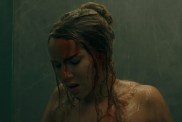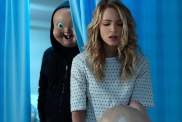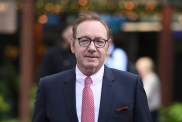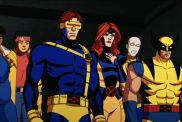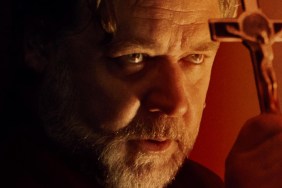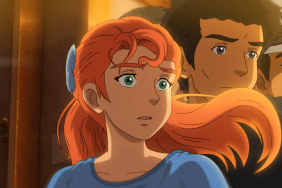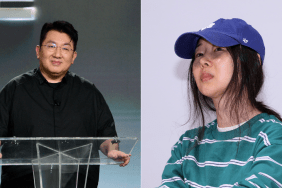
Talk about switching gears from a modern horror film to something more traditional and old school…
James Watkins: It certainly is that. The notion of making a very classy British ghost story, I was telling someone last night, there hasn’t been a really good British ghost story. If you look back, what was the last one? The Innocents? I’ve been having a lot of fun with The Others and The Orphanage, but it’s a great British tradition here. I read Jane’s script and thought this was a great opportunity. Her script had the potential to be a very scary film and it also had a heartbeat. It was about peoples’ different fears: The loss of a child, longing, grief and how it can warp people. I thought it was a great opportunity to make an elevated genre film. And then to go back to that ghost story element. Less is truly more in that traditional sense. What’s on the edge of the frame? What’s peeking out of the darkness? Let the viewer’s imagination go to work. Whatever you can shoot isn’t going to be as scary as what you can imagine. But it’s also a nasty horror film in terms of its content. There are a lot of horror films out there that are nasty, but what’s nasty isn’t necessarily scary. What our film, I’m hearing it does the trick and works not through nastiness, but through imagination.
But, like you said, the content is nasty. At the film’s core, there is a genuine threat to many children.
Watkins: It’s a dark theme. You had Eden Lake which was this adult fear of children they cannot contain and here it’s this dark primal fear and I think that works great. Parents fear for their children. Absolutely, I think it’s a deep and troubling theme to explore.

Watkins: Yeah, it was odd while we were making that. I wanted that challenge. What I loved about the potential for ghost stories, there’s a purity in the grammar of them. They can be very visual in a storytelling way and it’s very cinematic. It’s a real challenge because you’re trying to get the pacing right and judge the scares and atmosphere. This incremental sense of dread. It’s a very technical challenge. For Daniel, it was very high energy, but it was about dialing him down. I remember having a conversation with him about things being fizzy and flat between what his energy would be and what his character needed to be. But he was committed and worked hard to understand this guy who felt like he was underwater and struggling, has this gravitational pull to the afterlife. It’s a real technical challenge for an actor because what do you have to react to? Usually, you have actors feeding off one another and here you’ve got one actor feeding off of and reacting to his environment, which is a tough thing to do.
Well, how do you think you’ve grown as a director between Eden Lake and The Woman in Black?
Watkins: [laughs] I think, on one level, you get more confident. You become aware of the traps that you’ve fallen into in the past. I’ve only directed two films, so it’s a constant process and evolution and learning. I like that people keep giving me opportunities to learn.
What does the future bring for you? Anything lined up, perhaps more Hammer?
Watkins: Something at Warner Bros. and we’ll see where that will go. We have a few projects in the UK. It’s the usual story, just scraping away hoping some fool will give us money for the next project.
For more on the film, visit our movie page which has photos, videos and more.
